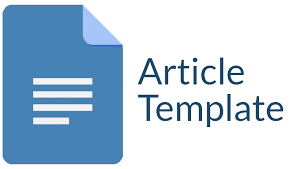Budget Politics In The Public Eye: A Critical Study Of Budget Cut Policies
Public Perception of Government Budget Cut Policy in Pekalongan City
Kata Kunci:
Budget Politics, , Budget Cuts, Public Perception, Public Services, Fiscal EfficiencyAbstrak
Pendekatan pemerintah dalam melakukan pemotongan anggaran, khususnya pada layanan publik seperti pendidikan, kesehatan, dan perlindungan sosial, telah memunculkan beragam pendapat dari masyarakat. Penelitian ini bertujuan untuk menganalisis dampak kebijakan pemotongan anggaran dari perspektif kebijakan fiskal serta mengungkap bagaimana persepsi masyarakat Kota Pekalongan terhadap kebijakan tersebut. Penelitian menggunakan pendekatan kualitatif melalui wawancara mendalam dengan berbagai kelompok masyarakat, termasuk guru, pelajar, karyawan swasta, ibu rumah tangga, dan aparatur pemerintah. Wawancara mendalam dilakukan dengan pedoman semi-terstruktur dan alat perekam suara, serta dilengkapi dengan sumber sekunder seperti regulasi pemerintah dan laporan anggaran. Analisis data dilakukan menggunakan proses tematik berdasarkan model analisis Creswell, yang mencakup pengkodean dan penyusunan tema-tema utama. Hasil penelitian menunjukkan adanya perbedaan persepsi yang signifikan antar kelompok masyarakat, yang dipengaruhi oleh latar belakang sosial, tingkat ketergantungan pada layanan publik, dan tingkat kepercayaan terhadap pemerintah. Kelompok yang terdampak langsung cenderung lebih kritis dan khawatir terhadap penurunan kualitas layanan, sementara kelompok lainnya lebih memahami alasan efisiensi fiskal pemerintah. Penelitian ini menekankan pentingnya transparansi, komunikasi yang efektif, dan partisipasi publik dalam proses perumusan kebijakan untuk memastikan bahwa kebijakan pemotongan anggaran dapat diterima dan memberikan dampak positif bagi masyarakat. Implikasi penelitian menyatakan bahwa penting untuk merancang kebijakan fiskal yang efisien secara teknis sekaligus efektif secara sosial.
Unduhan
Referensi
Ardhyaningtyas, Risca, Laksono Trisnantoro, and Retna Siwi Padmawati. 2014. “Evaluasi Besaran Alokasi DAK Bidang Kesehatan Sub Bidang Pelayanan Kefarmasian Tahun 2011-2012.” Jurnal Kebijakan Kesehatan Indonesia 03(03):157–63.
Elsa, Etika, and Meidi Kosandi. 2021. “Politik Anggaran Dalam Penyusunan Dana Hibah Pilkada 2020 (Studi Kasus Kabupaten Karawang Dan Kota Tangerang Selatan).” Journal of Politics and Democracy 1(1):14–27. doi: 10.61183/polikrasi.v1i1.2.
Febrianto, Mardika, and Astrid Maria Esther. 2023. “Pengaruh Anggaran Pendidikan, Anggaran Kesehatan, Dan Tingkat Kemiskinan Terhadap Indeks Pembangunan Manusia Di Indonesia.” Jurnal Ekonomi Trisakti 3(2):2841–50. doi: 10.25105/jet.v3i2.17787.
Habibah, Siti, and Abdul Halim. 2020. “Analisis Dampak Pemotongan Anggaran Belanja Pada Kinerja Kementerian Pertanian.” ABIS: Accounting and Business Information Systems Journal 6(1).
Hamka, Muh., Sakinah Nadir, and Haryanto. 2022. “Politik Anggaran Dan Relasi Aktor Dalam Penyusunan Anggaran Pendapatan Belanja Daerah.” Jurnal Politik Profetik 10(1):79–98. doi: 10.24252/profetik.v10i1a5.
Hasan, Ruslan. 2025. “Efisiensi Anggaran Untuk Belanja Yang Lebih Baik (Spending Better).” Kementerian Keuangan RI, Direktorat Jenderal Perbendaharaan.
Kawatu, Avelina S. F., Victorina Z. Tirayoh, and Christian Datu. 2024. “Evaluasi Akuntabilitas Dan Transparansi Pengelolaan Anggaran Pendapatan Dan Belanja Desa (APBDes) Desa Pineleng Dua Indah Kecamatan Pineleng.” 2:299–308. doi: 10.58784/rapi.192.
Masitha, Zainab, and Dwi Zulkafar Mulyadi. 2024. “Transparansi Keuangan Daerah: Studi Kualitatif Tentang Pengelolaan Anggaran Di Sulawesi Tenggara.” IJMA (Internsional Jurnal of Management and Accounting 5(2):226.
Murti, Listyana, Era, Sopanah, Ana, Hasan, Khojanah. 2021. “Evaluasi Adanya Refocusing Dan Realokasi Anggaran Terhadap Kinerja Bbkp Surabaya Tahun Anggaran 2020.” Widyagama National Conference on Economics and Business (WNCEB) 2(1):577–84.
Nurakhmadi, Dito Arief, Triya Indra Rahmawan, and Saring Suhendro. 2024. “Optimalisasi Partisipasi Masyarakat Dalam Penganggaran.” Peradaban Journal of Law and Society 3(1):48–62. doi: 10.59001/pjls.v3i1.173.
Nurwahidzain, Muchtar. 2025. “Penghematan Anggaran 2025.” Kementrian Keuangan, DJKN.
Rahayu, Nuning Sapta. 2025. “Dampak Efisiensi Anggaran Terhadap Pendidikan Dan Kesehatan: Apa Yang Harus Diwaspadai?” Kompasiana.
Rahmadania, Suci Risanti. 2025. “Menkes Sebut Efisiensi Anggaran Rp 19 T Tak Akan Pengaruhi Layanan Kesehatan.” DetikHealth.
Rapiuddin, and Bahrul Ulum Rusydi. 2017. “E Cce S.” EcceS (Economics, Social, and Development Studies 4(1).
Sanggelorang, Septiana M. M., Vekie A. Rumate, and F. D. J. Siwu. 2015. “Sulawesi Utara.” Http://Www.Sulutprov.Go.Id/Mengenal-Sulut/Sejarah/ 15(02):1–11.
Santoso, Adi Budi, and Jordan Putra Cahyono. 2023. “Kebijakan Penganggaran Sektor Publik Berbasis Kinerja.” Journal Of Economics Community Service 1(1).
Setiawan, Andik. 2015. “Politik Anggaran : Kebijakan Dana Bagi Hasil Migas Dalam APBD Kabupaten Bojonegoro Tahun 2015.”
Silvia, Anissa Nur, and Rita Myrna. 2023. “Peran Masyarakat Dalam Proses Perencanaan Anggaran Publik Untuk Meningkatkan Akuntabilitas Dan Efektivitas Penggunaan Dana Publik.” Edunomika 08(01):1–9.
Tambunan, Bonifasius H., and Rizki Christian Sipayung. 2024. “Reformasi Anggaran, Partisipasi Penyusunan Anggaran, Pengendalian Internal, Kualitas Anggaran Melalui Konflik Kepentingan.” 11(4):719–38. doi: 10.32534/jpk.v11i4.6446.
Universitas Muhammadiyah Yogyakarta. 2025. “Pakar UMY Minta Efisiensi Anggaran Dikaji Ulang, Jangan Pangkas Anggaran Yang Sentuh Pelayanan Publik Dasar.” Universitas Muhammadiyah Yogyakarta.
 Abstract views: 38
,
Abstract views: 38
, PDF Downloads: 30
PDF Downloads: 30





